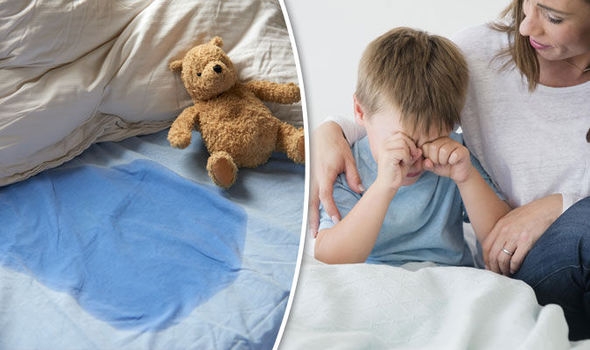As many as one out of five children wets the bed at night. Also called nocturnal enuresis, bedwetting is as common as it is misunderstood.
How you, as a parent, handle your child’s bedwetting can have a big effect on how successful your child is at staying dry. When you’re ready to talk with your child about bedwetting, here are a few simple tips that can help.
Bedwetting: Talking to Your Child
Educate. In a class of 30 children, as many as six kids may wet the bed. Letting your child know that other kids have the same problem can take the weight off his shoulders and help him feel he’s not alone.
Tell your child if you used to wet the bed. Was bedwetting a problem for you as a kid? If you or a close family member used to wet the bed at night, let your child know. This helps them understand that bedwetting may be hereditary and is not completely their fault.
Tell them they’re not to blame. Even if there’s no family history of bedwetting, make sure your child knows they’re not to blame for wetting the bed. Explain what can cause bedwetting, including how some children have small bladders or are such deep sleepers they don’t feel bladder contractions in the night.
Tell your child a doctor can help. Talk to your child about seeing a pediatrician or other health care professional to discuss bedwetting treatments. An examination by a doctor can also help rule out medical causes for wetting the bed, such as urological problems or a reaction to certain medications.
Talk to your child about treatment options. Make sure your child understands what’s available to help him overcome wetting the bed, including enuresis alarms, medication, and lifestyle changes. Generally, treatments such as medication are used for children older than 6. Explain, too, how each option works and what to expect from each treatment.
Talk about changing habits. Going to the bathroom before bed, avoiding caffeinated and salty foods, drinking a little less fluid close to bedtime — these and similar changes can help your child achieve dry nights, so talk to him about how he can help himself.
Be encouraging. When your child successfully follows the bedwetting treatment you’ve chosen — whether he’s had a dry night or not — give him praise and encouragement.
Stay low-key. After a child wets the bed, be sure to remain calm and positive.
Encourage your child to go on sleepovers. Your child doesn’t need to miss out. With the use of absorbent pants, medication, and the help of other parents, let your child know they can go on sleepovers or away to camp.
Ask if it’s OK to share. Many kids don’t mind it if other adults know about their bedwetting — especially if that adult can help, such as a parent at a sleepover, or a counselor at camp. But do check with your child first.
Talk to your child about taking part in cleaning up. Sharing the responsibility of changing and washing the wet sheets helps a child actively tackle the problem of bedwetting. Help them with the activity, and praise them for taking part.

